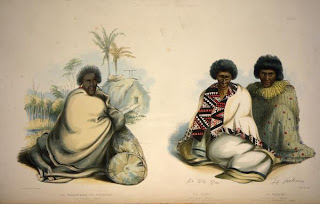Grey wanted to attack the King but lacked necessary resources. In particular he needed more troops. He could get some troops from local militia but not the thousands of professional troops he wanted.
The Imperial Government would not give him troops without good reason. Grey had no valid reason so he lied. Then he lied some more, and some more. In the ‘wars’ video Belich mentions the drunken rambling of the Maori called Whare who talked about a planned attack on Auckland. It was this ‘threat’ that Grey continued to hammer on about, much as Busby had harped on about the French threat in the 1830’s.
 Why the Maori would attack their best market Grey never explained. What they would achieve by driving the Pakeha out of
Why the Maori would attack their best market Grey never explained. What they would achieve by driving the Pakeha out of
As 1862 moved into 1863 Greys war machine grew,
The Government for its own part took out a £3m loan secured by the promise of confiscated lands. It recruited troops from
So Grey assured Maori he did not seek war but would ‘dig around the King’. Meanwhile he built his army and then built the
Once he had an army capable of defeating the King, Grey set about starting the war. The Mangatawhiri Stream lay on the Kings border, north was settler
In July he crossed the stream but backdated the declaration that any Maori who did not acknowledge the
The Waikato War had started.






